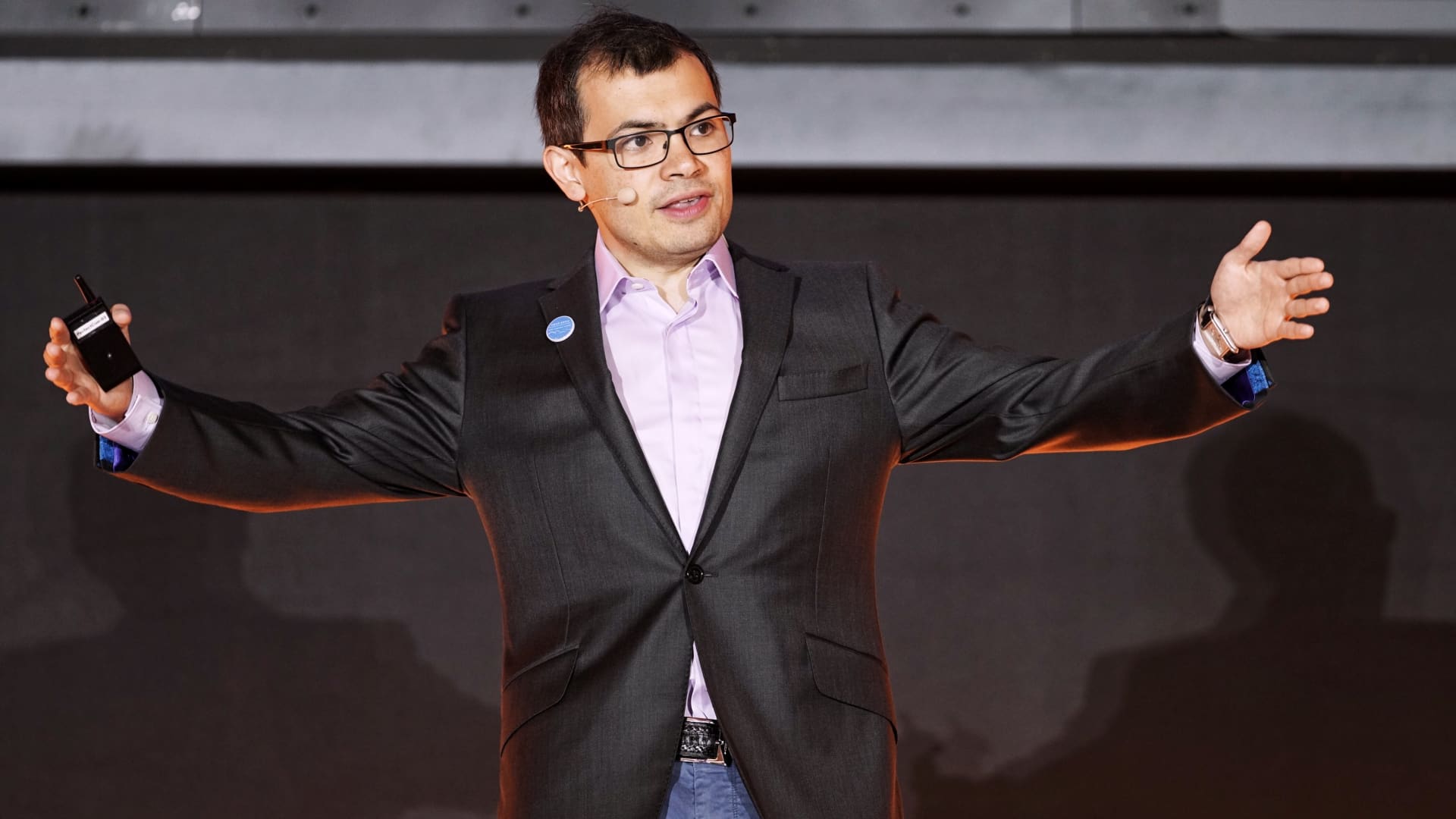
Demis Hassabis is a celebrated name in artificial intelligence research. He’s a chess master and a neuroscientist. On Wall Street, he’s less known.
That may not be true for long. Hassabis is emerging as the face of Google’s mammoth AI effort and on Tuesday will take the stage at the annual developer’s conference, Google I/O, for the first time.
For an academic who’s credited with some of the most important breakthroughs in AI over the past decade, Hassabis is extremely clear on his task ahead: bring the latest AI technologies to every corner of the Google universe to serve its billions of users.
“We’re like the engine room of the company,” Hassabis told CNBC, speaking about his newly integrated AI unit within Google.
Last month, Alphabet CEO Sundar Pichai merged Hassabis’ DeepMind with Google Brain, a separate AI team, and selected Hassabis to lead the group. It’s now up to Hassabis to reestablish Google as the leader in generative AI after the company was caught off-guard by the rapid emergence of OpenAI, which is backed by Microsoft.
DeepMind CEO Demis Hassabis at a 2017 event in China.
Source: Alphabet
There may be no more important task at Google, especially as new generative AI services give consumers alternative and more creatives ways to search for information online. The business question is — can a longtime researcher like Hassabis be the person to ship products that consumers love?
Geoffrey Hinton, known as the “Godfather of AI,” says there’s no questioning Hassabis’ will to win.
“I don’t think I’ve ever met anybody more competitive,” said Hinton, who advised Google to buy DeepMind about a decade ago. “Demis is competitive at the level of people to get gold medals in the Olympics.”
He formed that trait at any early age. Hassabis was a child chess prodigy who at one point was the No. 2 rated player in the world. He also competed in the World Series of Poker.
Hassabis says he has consumer experience on his side, too. At just 17 years old, he shipped a hit video game in the 1990s called “Theme Park.” Games at that time had to be fun and easy to navigate in order to succeed, Hassabis said. After Theme Park, he created his own video game company, Elixir Studios.
Hassabis would later go on to co-found DeepMind, which became widely recognized as the world’s leading AI research lab, attracting some of the most prominent experts in deep learning. When Google acquired the lab for a reported $500 million in 2014, DeepMind was given a long leash to operate independently.
Falling behind
Under Hassabis, DeepMind was known for developing its technology through games like Breakout and AlphaGo, an AI program that beat the world’s top Go player.
There was a practical reason for focusing on games. Hassabis told CNBC that “simulations are totally safe, have no consequences, but they can still learn from it.”
During his career at DeepMind and then at Google, Hassabis dominated the field of AI.
Even Tesla CEO Elon Musk would tell OpenAI co-founders in 2018 that they would need billions of dollars to have a chance of competing with Hassabis and Google.
Google, however, would lose that edge as rivals like OpenAI and Microsoft brought headline-making products like ChatGPT and Copilot to market.
A person who has worked with Hassabis but wanted to remain anonymous said that, for a period of time, Hassabis may have been more interested in winning academic accolades than launching products people could use. Nature magazine, one of the most influential scientific journals in the world, has featured Hassabis’ work many times over the past decade.
“Accolades were never the end goal,” DeepMind said in a statement to CNBC. “They simply reflect the importance and impact of the research they recognized.”
One of DeepMind’s most important products, AlphaFold, was a groundbreaking piece of technology that used AI to help scientists predict the structure of proteins, a massive challenges in biology for decades.
DeepMind open sourced AlphaFold, essentially giving it away for free.
In 2017, a team of Google researchers, separate from DeepMind, published a breakthrough study on Transformers, a way for AI models to better process the texts used for training.
Microsoft CEO Satya Nadella (R) speaks as OpenAI CEO Sam Altman (L) looks on during the OpenAI DevDay event in San Francisco on Nov. 6, 2023.
Justin Sullivan | Getty Images
That jumpstarted the wave of AI innovation that followed, notably at OpenAI. Transformers is the “T” in ChatGPT.
Critics have argued that Google was giving away key products and research, and helping its biggest competitors.
“They had the lead and they’ve been very cautious,” Hinton said. “They’ve been very cautious both about generative AI images, and about the large language models. And when OpenAI teamed up with Microsoft and ChatGPT was being used by Microsoft, Google couldn’t afford to be cautious anymore.”
Hassabis and Google went on offense.
The Washington Post reported in May 2023 that Google was internally announcing a big departure from previous policy. Employees had to stop sharing their research with the world, only publishing papers after the research had been turned into products.
AlphaFold became a huge business opportunity, securing commercial partners like Eli Lilly and Novartis for drug discovery.
During a TED talk, Hassabis said the ChatGPT moment demonstrated that the public found value in LLMs and was ready to embrace them.
“When we’re working on these systems, mostly you’re focusing on the flaws and the things they don’t do and hallucinations,” he said. “We wanted to improve those things first before putting them out. But interestingly, it turned out that even with those flaws, many tens of millions of people still find them very useful.”
Hassabis said that it was time to bring these products “beyond the rarefied world of science.”
Now investors are waiting to see if Google can accomplish what they view as the most important feat, and turn that bleeding-edge science into profits.


